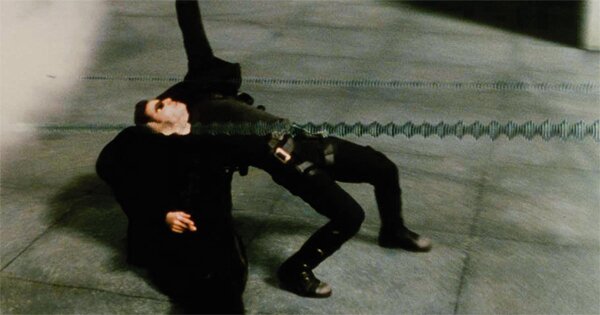Zero gravity shootouts, chaotic car chases and mammoth explosions that would make Michael Bay green with envy. Yes, the new Sci-Fi thriller Inception is your typical Hollywood blockbuster.
Only it’s not.
Hidden somewhere beneath all that fandangle action lies something studio executives would usually hiss at while clutching a crucifix; a clever plot. Few films have one nowadays, possibly due to the word ‘clever’ being misinterpreted as ‘clichéd’ by screenwriting monkeys, or possibly because thinking films generally wind up in art-house theatres with a total audience of four. For this reason, if a big-budget action film wants to make a profitable return, the story must go something like this: boy meets girl, girl has giant knockers and runs around in super slow motion, boy discovers he can shoot lasers from his elbows, girl is impressed. Roll credits.
Inception, for reasons I’m about to tell you (so be patient!), is an exception to this rule. The film deals with psychological concepts that would give Dr. Freud a braingasm, such as the veracity of our dreams, the conceptual fabric of ideas and the uncontrollable influence of our subconscious. Surprisingly, these dense themes haven’t stopped the film from exploding at the Australian box office, earning an impressive $16 million in its first two weeks. That’s practically unheard of for a film that is neither based on a pre-established franchise nor made by James Cameron.
So does this mean that your average moviegoer is actually getting smarter?
Goodness no!
You see, the real genius of Inception has little to do with how impenetrably complex the story is, but rather how well it convinces you that it’s impenetrably complex. Given that almost every important plot detail is plainly verbalised by the characters, and that the story is actually without any game-changing twists, the film is arguably quite straightforward and easy to follow. Sure, things get a little bit hazy if you decide to read into it on a deeper level, but between dodging freight trains and outrunning avalanches, you don’t get much time to think too hard about the intricacies of the plot before the film is over. As a result, Inception leaves everyone feeling as though they have a PhD in psychology because they ‘get it’.
It’s interesting to note that Inception’s writer/director Christopher Nolan actually began formulating the story over ten years ago, right around the time a little film called The Matrix was making the rounds. Larry and Andy Wachowski’s reality-bending thriller went on to earn a sizeable $460 million globally as both audiences and critics alike ‘got it’. As with Inception, The Matrix succeeded not only because it squeezed on the adrenal glands like any good action film should, but because it tricked the brain into thinking the plot is actually more confusing than it really is.
As for the two Matrix sequels, Reloaded and Revolutions? Well, they’re a mess. It’s as if the Wachowski brothers drew a line straight down the middle of their screenplay in order to divide brains and brawn – smart people and dumb people – so that they never crossed paths. If Reloaded wasn’t chasing down teleporting albino twins in one of many pointless chase sequences, it was forcing us to endure some of the most confusing expository dialogue from a pompous twat who looks like he should be selling us fried chicken. What sets the original Matrix apart from these lacklustre sequels is that nearly all of the action scenes are integral to the telling of the story (yes, even the bullet-time). The same goes for Inception; the gravity-defying action is undeniably there to show off some big budget effects, but more importantly, it’s there to craft an engaging narrative in the most exciting way possible.
As you can imagine, it’s not easy to achieve a perfect balance between smart but not too smart, exciting but not senseless, and still prove to be hit at the box office. In all of cinematic history, I can only think of a few other quality Sci-Fi films that fit the bill: 2001: A Space Odyssey, Planet of the Apes, Back To The Future, Total Recall, Minority Report and WALL-E (as much as I’d love to include Blade Runner, the fact remains that the film was a critical and commercial flop when it was first released). These films effectively unite three radically different types of moviegoers; those who go to the movies purely for the spectacle, those who think all films should be profound explorations of the human condition and those who like to dress up as Chewbacca on weekends.
And that, my friends, is a beautiful thing.
– This article first appeared in On Dit Magazine (78.9).
 Follow the author Anders Wotzke on Twitter.
Follow the author Anders Wotzke on Twitter.

















